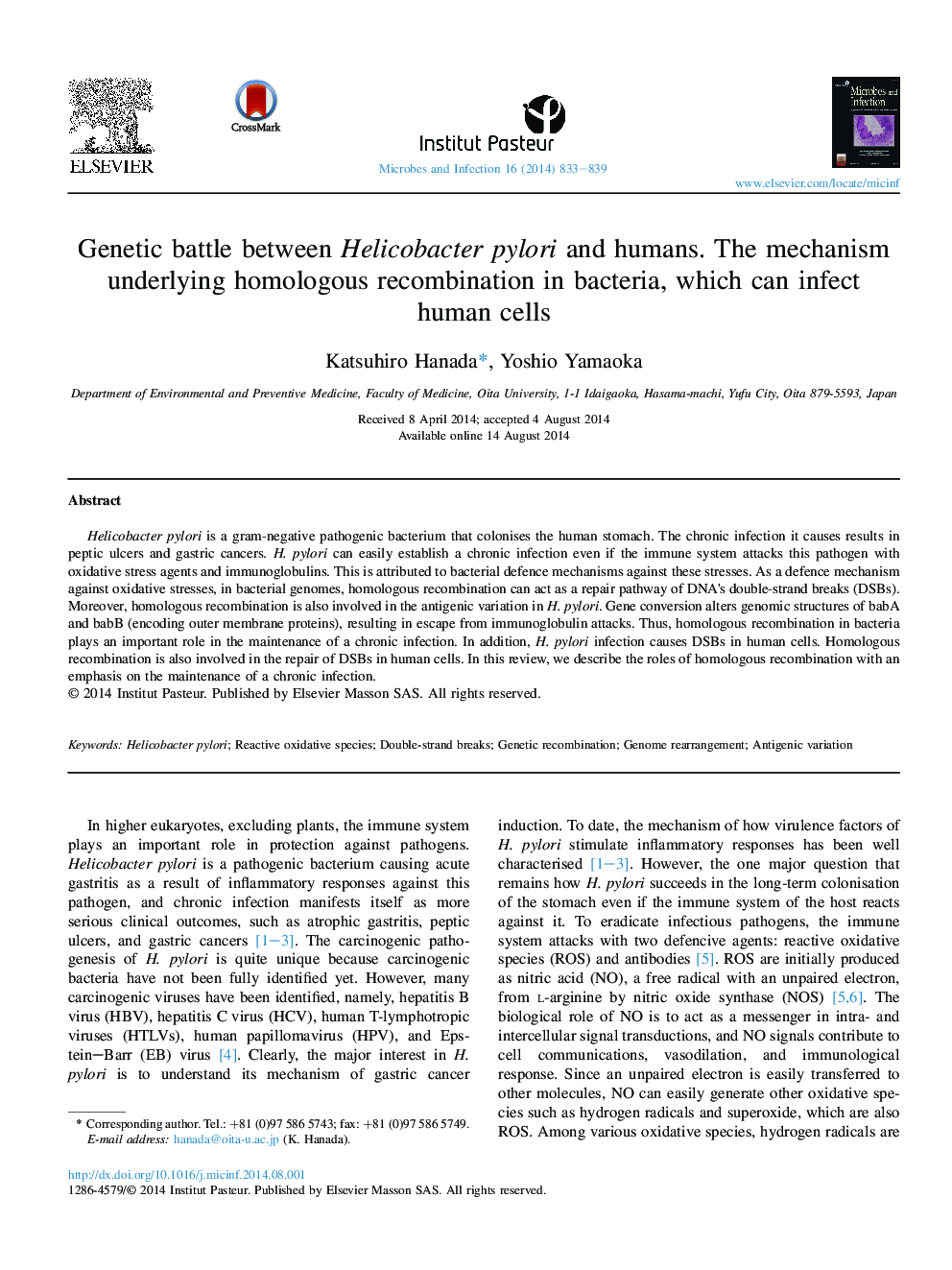| کد مقاله | کد نشریه | سال انتشار | مقاله انگلیسی | نسخه تمام متن |
|---|---|---|---|---|
| 3414671 | 1224881 | 2014 | 7 صفحه PDF | دانلود رایگان |
Helicobacter pylori is a gram-negative pathogenic bacterium that colonises the human stomach. The chronic infection it causes results in peptic ulcers and gastric cancers. H. pylori can easily establish a chronic infection even if the immune system attacks this pathogen with oxidative stress agents and immunoglobulins. This is attributed to bacterial defence mechanisms against these stresses. As a defence mechanism against oxidative stresses, in bacterial genomes, homologous recombination can act as a repair pathway of DNA's double-strand breaks (DSBs). Moreover, homologous recombination is also involved in the antigenic variation in H. pylori. Gene conversion alters genomic structures of babA and babB (encoding outer membrane proteins), resulting in escape from immunoglobulin attacks. Thus, homologous recombination in bacteria plays an important role in the maintenance of a chronic infection. In addition, H. pylori infection causes DSBs in human cells. Homologous recombination is also involved in the repair of DSBs in human cells. In this review, we describe the roles of homologous recombination with an emphasis on the maintenance of a chronic infection.
Journal: Microbes and Infection - Volume 16, Issue 10, October 2014, Pages 833–839
